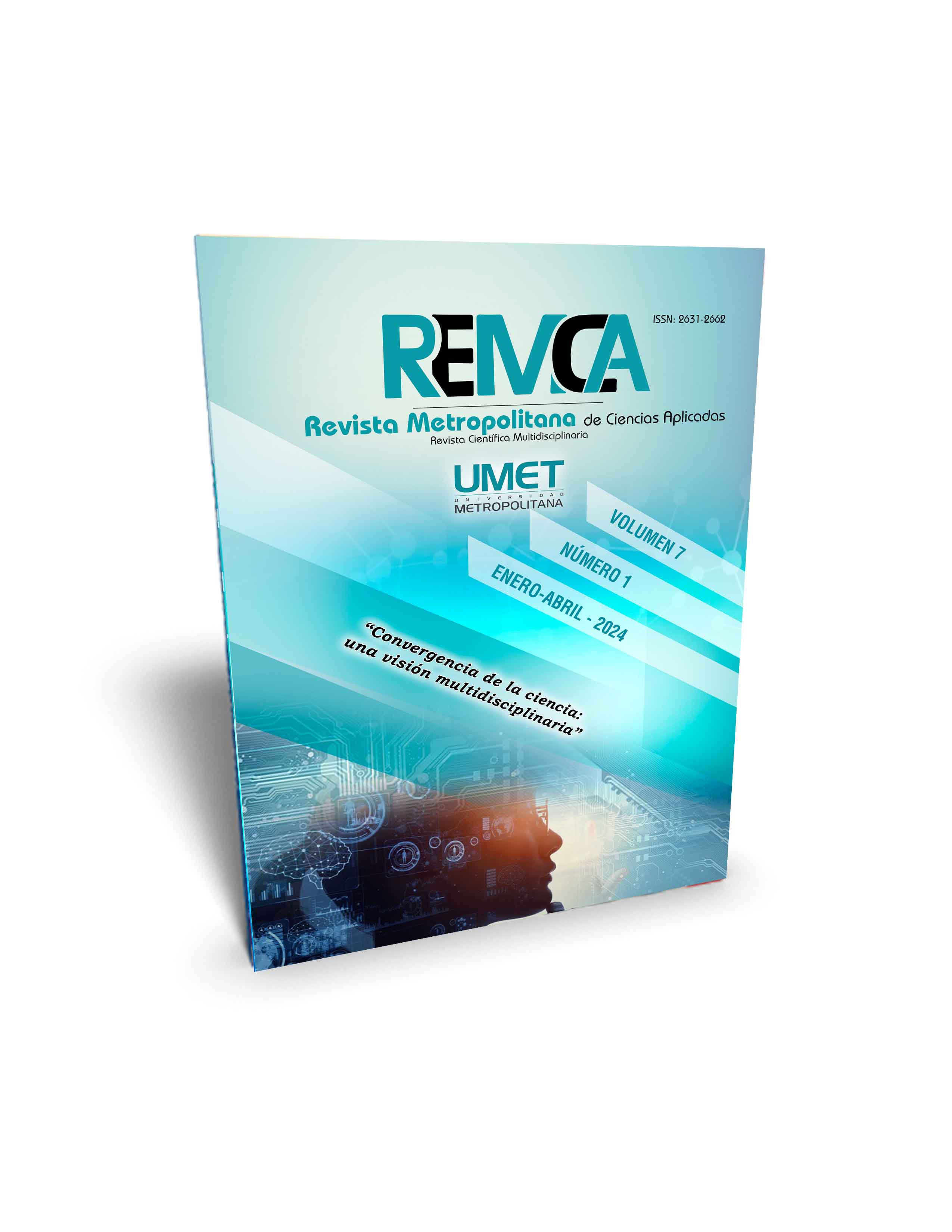Diagnosis of the behavior of socio-productive enterprises and their impact on the development of the La Maná Canton
DOI:
https://doi.org/10.62452/aqk2q954Keywords:
Entrepreneurship, socio-productive, economic and social impactAbstract
This study examined the impact of socio-productive enterprises on the development of Cantón La Maná. A non-experimental methodology with a mixed approach combining descriptive and explanatory elements was used. In the descriptive phase, surveys were conducted with 281 socio-productive entrepreneurs, collecting quantitative data on aspects such as size, sector of activity, employment generated, and perceptions of challenges and opportunities. This provided a detailed view of the entrepreneurial landscape in the area. The explanatory phase included in-depth interviews with three members of the Cantonal Council of the Decentralized Autonomous Government of Canton La Maná. These interviews provided qualitative information on the local government's perception and approach to socio-productive entrepreneurship, exploring issues such as support policies and the strategic vision for local economic development. It was concluded that effective partnership between entrepreneurs and government can lead to more informed and effective solutions. Lack of access to finance was identified as an obstacle to growth, limiting investment in technology and infrastructure. The importance of the role of government and financial institutions in providing access to affordable financing through loans, grants or other mechanisms to foster entrepreneurial growth was highlighted.
Downloads
References
Aguaiza, M., & Solís, J. (2022). La cultura del emprendimiento y el impacto en proyectos productivos. Un análisis en Cañar, Ecuador. CIENCIAMATRIA, 7(3).
Ávila, E. (2021). La evolución del concepto emprendimiento y su relación con la innovación y el conocimiento. Revista Investigación y Negocios, 14(23), 32-48.
Barragán, M., & Ayaviri, V. (2020). Innovación y Emprendimiento, y su relación con el Desarrollo Local del Pueblo de Salinas de Guaranda, Provincia Bolívar, Ecuador. Información tecnológica, 28(6), 71-80.
Becerra, E. (2020). El emprendimiento e innovación. Una perspectiva de desarrollo económico, social y sustentable en la Zona 6. Conciencia Digital, 3(3).
Feijó, N., Feijó, T., Moreira, J., & Salazar, G. (2020). Emprendimiento social y desarrollo sostenible. Polo del Conocimiento: Revista científico - profesional, 5(3), 374-388.
Mejía, J. (2019). Propósitos organizacionales como alternativa para los problemas que proponen los modelos canvas y lean canvas. Innovar, 29(72), 31-40.
Mujica, M., Smith, C., Chirino, I., García, B., Gutiérrez, C., Calderón, X., & Quero, M. (2019). Emprendimientos productivos familiares: Estrategia local en red para el desarrollo sostenible del caserío “El Mamonal”. Multiciencias, 13(3).
Romero, R., Rivera, G., & León, B. (2021). Emprendimiento como modelo productivo en Latinoamérica. Revista Científica FIPCAEC (Fomento de la investigación y publicación científico-técnica multidisciplinaria). ISSN: 2588-090X . Polo de Capacitación, Investigación y Publicación (POCAIP), 5(18), 195-210.
Sánchez, D. (2021). Diagnóstico y perspectivas de fomento del emprendimiento como instrumento de desarrollo en el cantón San Pedro de Pelileo. Revista Vínculos ESPE, 6(3), 31-45.
Solís, Y., Pluas, A., & Pihuave, J. (2022). Gestión de Emprendimiento como Alternativa de Desarrollo Local Sostenible en las Asociaciones. Domino de las Ciencias, 8(1).
Suárez, E. (2018). Incubación de emprendimientos sustentables en el grupo social “San Juan Bosco” Loja. INNOVA Research Journal, 3(10.1).
Downloads
Published
Issue
Section
License
Copyright (c) 2024 Limber Hernán Murillo-Burgos, Karina Elizabeth Apolo-Reyes, Marilin Vanessa Albarrasin-Reinoso, Luis Fernando Jácome-Alarcón (Autor/a)

This work is licensed under a Creative Commons Attribution-NonCommercial-ShareAlike 4.0 International License.
Authors who publish in Revista Metropolitana de Ciencias Aplicadas (REMCA), agree to the following terms:
1. Copyright
Authors retain unrestricted copyright to their work. Authors grant the journal the right of first publication. To this end, they assign the journal non-exclusive exploitation rights (reproduction, distribution, public communication, and transformation). Authors may enter into additional agreements for the non-exclusive distribution of the version of the work published in the journal, provided that acknowledgment of its initial publication in this journal is given.
© The authors.
2. License
The articles are published in the journal under the Creative Commons Attribution-NonCommercial-ShareAlike 4.0 International License (CC BY-NC-SA 4.0). The terms can be found at: https://creativecommons.org/licenses/by-nc-sa/4.0/deed.en
This license allows:
- Sharing: Copying and redistributing the material in any medium or format.
- Adapting: Remixing, transforming, and building upon the material.
Under the following terms:
- Attribution: You must give appropriate credit, provide a link to the license, and indicate if any changes were made. You may do this in any reasonable manner, but not in any way that suggests the licensor endorses or sponsors your use.
- NonCommercial: You may not use the material for commercial purposes.
- ShareAlike: If you remix, transform, or build upon the material, you must distribute your creation under the same license as the original work.
There are no additional restrictions. You may not apply legal terms or technological measures that legally restrict others from doing anything the license permits.




